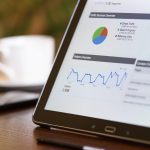Not many people are familiar with the term "big data." Big data affects everyone and what's surprising is the fact that there is no education or training on its importance. In layman's terms, the phrase big data is used to refer to large and complex sets of data that can be computationally analysed to reveal trends and patterns. So, many people are not aware of the concept of … [Read more...] about A Beginner’s Look at Big Data and its Benefits for Your Business
Big Data
Learn everything you need to know about big data. Find out how companies are using this revolutionary technology and what it means for your business strategy.
Why Data Governance is the Foundation of a Healthcare Big Data Strategy
Big data is everywhere, and many businesses are using it to improve their processes and strategies with great success. But one area where big data seems to be lagging is in healthcare. Many healthcare institutions want to adopt and expand their usage of big data, but in order to do so, they'll need to focus on data governance. What is data governance? In a nutshell, data … [Read more...] about Why Data Governance is the Foundation of a Healthcare Big Data Strategy
6 Signs Your Company Needs a New Data Strategy
Big Data is not the latest jargon that has crept into executive meetings, it's becoming an essential business practice used by most organisations today. Over the years, businesses have become aware of the insights that they can gain from data analytics and are collecting increasing amounts of data. Yet, many businesses do not have a proper data strategy in place and are simply … [Read more...] about 6 Signs Your Company Needs a New Data Strategy
Enterprise Journey to Becoming Digital
Do you want to be a digital enterprise? Do you want to master the art of transforming yourself and be at the forefront of the digital realm? How can you change your business to achieve this? Derive new values for yourself, and find better and more innovative ways of working. Put customer experience above and beyond everything as you find methodologies to support the rapidly … [Read more...] about Enterprise Journey to Becoming Digital
4 Ways How Big Data Will Improve Road Safety
With over 40,000 deaths each year coming from traffic-related collisions and accidents, it's a clear sign that improving road safety is a top priority across the nation. Advances in technology are helping reduce accidents and improving overall driver safety through a variety of methods. Here are the top 4 ways that technology will help improve road safety in the coming … [Read more...] about 4 Ways How Big Data Will Improve Road Safety
What is big data?
Big data is a term that refers to the massive amount of digital data created and shared every day. Big data can transform how we live, work, and communicate. It can be used to improve everything from public health and urban planning to business and marketing.
Big data is also changing the way we think about privacy and security. The volume, velocity, and variety of big data present challenges and opportunities for organizations and individuals. Regardless, big data is here to stay, and its impact will only continue to grow in the years to come.
What is big data analytics?
Big data analytics is the process of turning large, complex data sets into actionable insights. Businesses use various analytical tools and techniques, including machine learning and statistical analysis, to do this.
Big data analytics can be used to improve decision-making in areas like marketing, operations, and customer service. It can also be used to identify new business opportunities and optimize existing processes. With the help of big data analysis, businesses can gain a competitive edge by using their data better.
Want to learn more about big data? Datafloq has courses available. Contact us to get started.
When was big data introduced?
The term big data was coined in the 1990s, with some giving credit to John Mashey for popularizing the term. However, the concept of big data has been around for much longer.
Where does big data come from?
In the early days of computing, scientists and businesses began to realize that the amount of data being generated was increasing exponentially. As a result, they began to develop new methods for storing and processing data.
Over time, these methods have become increasingly sophisticated and have played a key role in enabling businesses to make sense of vast amounts of information. Today, big data is used in various industries, from retail to healthcare, and its importance is only likely to grow in the years to come.
What are examples of big data?
One of the most common examples of big data is social media data. With over 2 billion active users, Facebook generates a huge amount of data every day. This includes information on user interactions, posts, and even location data. Analyzing this data can help companies better understand their customers and target their marketing efforts.
Another example of big data is GPS signals. These signals are constantly being generated by devices like cell phones and fitness trackers. When combined with other data sets, GPS signals can be used to provide insights into everything from traffic patterns to human behavior. Finally, weather patterns are another type of big data set. By tracking these patterns over time, scientists can better understand the impact of climate change and develop strategies for mitigating its effects.
How do companies use big data?
Companies use big data in marketing, product development, and customer service. By analyzing large data sets, businesses can identify patterns and trends that would be otherwise difficult to spot. For example, a company might use big data to track customer behavior patterns to improve its marketing efforts.
Alternatively, a company might use big data to improve its products by identifying areas where customers are most likely to experience problems. For instance, big data can be used to improve customer service by finding pain points in the customer journey. Ultimately, big data provides companies with a valuable tool for gaining insights into their business operations.






